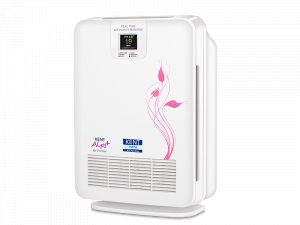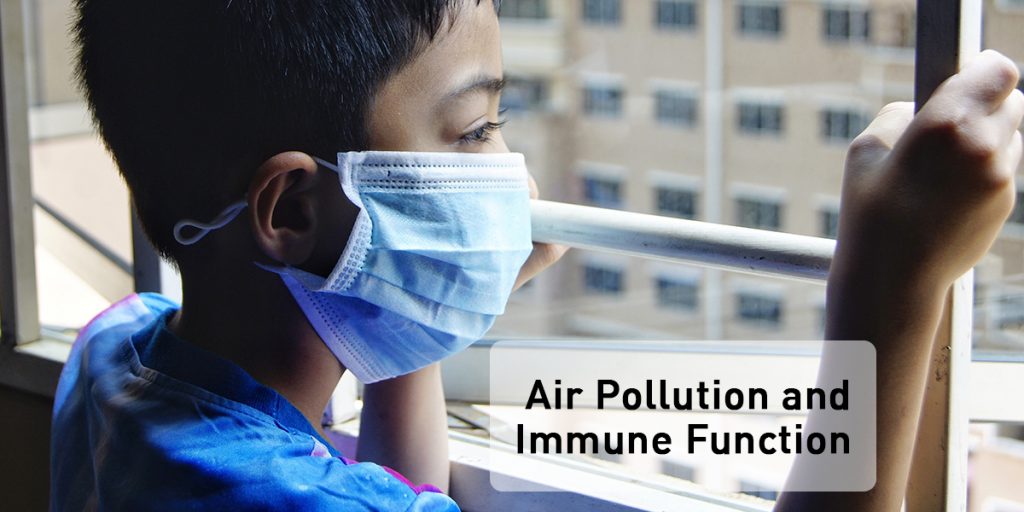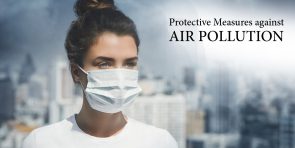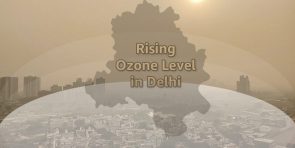How Does Air Pollution Affect Our Immune System?
A strong immune system is very important for the functioning of a healthy body. It is necessary to understand how different pollutants have different effects on our immune system. Let us understand how air pollution adversely affects the functioning of our body and our immunity.
The human body’s immune system consists of different types of immune cells. Air pollution disrupts the functioning of different immune cells like particle-clearing macrophages, inflammatory neutrophils, dendritic cells that orchestrate adaptive immune responses and lymphocytes. Air Pollution aggravates T helper lymphocyte type 2 (Th2) and T helper lymphocyte type 17 (Th17) adaptive immune responses, which are responsible for asthmatic and allergic conditions. Besides this, air pollution also widely affects the entire body’s immune system such as the neonate and gastrointestinal tract. Read on to understand the effects of air pollution on the immune system and how one can reduce its health effects.
What is Air Pollution?
Air pollution is the presence of pollutants in the air. There are many types of pollutants, some are natural and some are man-made. The main cause of air pollution is the burning of fossil fuels that release carbon dioxide into the atmosphere. It also includes exhaust fumes from vehicles and other industrial processes.
When the air quality dips because of various pollutants like dust particles, poisonous gases and particulate matter, it is known as air pollution. Each pollutant causes damage in its way. For example, particulate matter is made up of fine particles that get sucked deep into the airways because of their small size and thus have the ability to cause more damage. Nitrogen dioxide is another air pollutant that can cause severe respiratory problems like asthma or COPD. Ozone gas molecules can irritate the airways and decrease lung capacity. Since air pollution is a dynamic thing, it varies according to seasons, the weather, area and even the time of the day.
Air pollution and the Immune System
According to a study published in the Circulation Research journal of the Ohio State University, chronic breathing of polluted air causes cardio-respiratory diseases. Inhaling dirty air can trigger the release of white blood cells into the bloodstream and can result in inflammation. The presence of PM or fine particulate matter triggers imbalance in the immune system. Molecules present in the cells, when they are exposed to particulate matter, can start reacting. The molecules start changing structures and activate toll-like receptor 4 (TLR4). TLR4 identifies the specific characteristics of pathogens and activates the white blood cells.
Effects of Air Pollution on Your Health
Air pollution has detrimental effects on the immune system and your overall health. It can cause irritation of eyes, dry nose, mouth and throat allergy, skin itching, diminished energy levels, headache and dizziness.
It also causes some serious conditions such as
- Asthma Attack
- Chronic Obstructive Pulmonary Diseas
- Lung Disorders
- Pulmonary Cancer
- Neumonia
- Neurological Problems
- Respiratory diseases like asthma attacks, chronic obstructive pulmonary disease, lung disorders, pulmonary cancer, pneumonia, etc.
- Leukaemia, which occurs due to the exposure to benzene vapours (through inhalation)
- Birth defects, which may be caused due to the mother inhaling polluted air while carrying the baby in the womb
- Cardiovascular problems, heart diseases, and stroke
- Neurological problems and developmental deficits due to inhaling air toxins such as mercury.
As per reports, close to 7 million people die due to polluted air every year. In order to avoid serious and fatal health hazards caused by air pollution, it is advisable to remain indoors when outdoor air pollution levels are high and ensure that at least the indoor air unpolluted.
What can be done to reduce the damage caused by air pollution
Breathing in polluted air can cause serious health problems for you. It has been found that breathing in polluted air causes asthma, lung cancer and other respiratory problems. The World Health Organization (WHO) reports that 7 million people die annually from diseases caused by exposure to poor quality air.
There are certain steps one could take to reduce the damage caused daily.
- Reduce foray in the polluted environment during the early evenings. If you exercise outdoors, move indoors to a gym or try exercising in the early morning hours.
- Always Keep the inhaler handy.
- Take preventive medication if you have asthma.
- Don’t venture out during the rush hour when the traffic and the pollution caused by it are at their worst. If you cannot avoid that, stay off the main road and find alternate routes to reach your destination.
- Many plants purify the air. Grow them abundantly at home and in your office workspace
Solution for Indoor Air Pollution

Using an air purifier is the smartest way to curb air pollution at home. KENT has a wide range of air purifiers equipped with KENT HEPA Air Purification and Ozone Disinfection to purify the air quality inside your home. KENT air purifiers remove bacteria, PM 2.5, pet dander, odour, and other pollutants from indoor air. These air purifiers are high-efficiency and low-maintenance home air cleaners with CE certification. Not much can be done to purify the air quality outdoors, however, upgrading the air quality within your home is in your hands.





